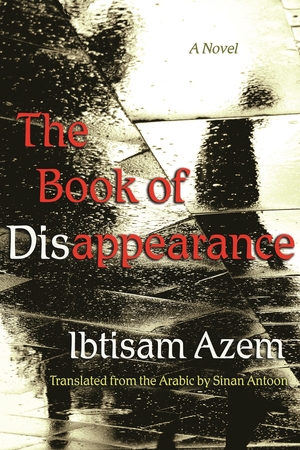"Speculative and haunting, this is an exceptional exercise in memory-making and psycho-geography."—The International Booker Prize 2025 Judges
"In this immensely readable novel, Ms. Azem does not resolve for us the calamity of Palestine's occupation by Israel. But stylishly and with jeweled virtuosity she makes us understand that acts of great and humane imagination will be required, and with this potent book points where and how we must all go."—Richard Ford
"Unquestionably powerful."—Words Without Borders
"Using a magical realism as cool and lacerating as that of Borges, Azem builds the story of a young Israeli journalist and his vanished Palestinian friend into a devastating exploration of the nakbah, betrayal, erasure, and love of home. For lovers of Palestinian literature, The Book of Disappearance has earned its place beside Saher Khalifa's Wild Thorns, and thanks to Sinan Antoon's masterful translation, Anglophone readers can now experience this thrilling, essential work."—Molly Crabapple, coauthor of Brothers of the Gun
"In Jaffa, the most lively presence is that of the dead. Ibtisam Azem has gifted us with a poignant, mysterious, lyrical, new novel."—Ahdaf Soueif, author of The Map of Love
"The conceit of disappearance shocks us. We remain silent before its ghostly presence. Fantasy pulsates with reality and gestures to it in a powerful metaphor."—Abbas Baydoun, author of Blood Test
"In The Book of Disappearance, Palestinian novelist Ibtisam Azem has crafted a masterpiece which immediately leads the reader to ponder the historical foundations of the 1948 Nakba, as well as the Zionist intentions and ethnic cleansing of Palestinians from the land where they belong."—Middle East Monitor
"Fantasy and magical realism reflect reality, drawing on the 1948 Nakba, when many Palestinians were displaced by the state of Israel’s creation."—World Literature Today
"A wonderful book, showing both what the Palestinians have suffered and continue to suffer and the Israelis’ reaction to their disappearance."—The Modern Novel
"The Book of Disappearance demonstrates Azem’s dexterity, imagination and craft and has been brought to English-language readers in the pure, measured prose of the poet and writer Sinan Antoon."—The Citizen
Description
What if all the Palestinians in Israel simply disappeared one day? What would happen next? How would Israelis react? These unsettling questions are posed in Azem’s powerfully imaginative novel. Set in contemporary Tel Aviv forty eight hours after Israelis discover all their Palestinian neighbors have vanished, the story unfolds through alternating narrators, Alaa, a young Palestinian man who converses with his dead grandmother in the journal he left behind when he disappeared, and his Jewish neighbor, Ariel, a journalist struggling to understand the traumatic event. Through these perspectives, the novel stages a confrontation between two memories. Ariel is a liberal Zionist who is critical of the military occupation of the West Bank and Gaza, but nevertheless believes in Israel’s project and its national myth. Alaa is haunted by his grandmother’s memories of being displaced from Jaffa and becoming a refugee in her homeland. Ariel’s search for clues to the secret of the collective disappearance and his reaction to it intimately reveal the fissures at the heart of the Palestinian question.
The Book of Disappearance grapples with both the memory of loss and the loss of memory for the Palestinians. Presenting a narrative that is often marginalized, Antoon’s translation of the critically acclaimed Arabic novel invites English readers into the complex lives of Palestinians living in Israel.
About the Author
Ibtisam Azem is a Palestinian short story writer, novelist, and journalist, based in New York. She works as a senior correspondent covering the United Nations for the Arabic daily al-Araby al-Jadeed. She is also co-editor at Jadaliyya e-zine. She has published two novels in Arabic. She is currently working on a collection of short stories.
Sinan Antoon is a poet, novelist, translator, and scholar. He is associate professor at New York University's Gallatin School. His translation of Mahmoud Darwish’s In the Presence of Absence won the 2012 National Translation Award.
July 2019




